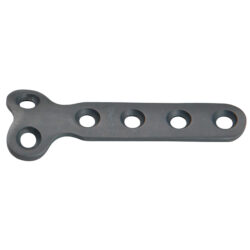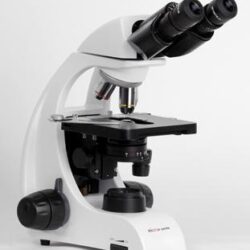In the fast-evolving world of healthcare, having the right medical devices is crucial for ensuring effective diagnosis, treatment, and patient care. Medical devices have seen significant advancements over the years, making modern healthcare more precise and efficient. This comprehensive guide details the essential medical devices necessary for contemporary healthcare facilities.
Diagnostic Devices
Stethoscopes
Stethoscopes are fundamental in any healthcare setting. They allow healthcare professionals to listen to internal sounds, such as heartbeats and lung functions, providing vital information for diagnosing various conditions.
Blood Pressure Monitors
Blood pressure monitors measure the force of blood against the walls of the arteries. Accurate blood pressure readings are essential for diagnosing hypertension and other cardiovascular conditions.
Types of Blood Pressure Monitors:
- Manual Blood Pressure Monitors: Used with a stethoscope to manually measure blood pressure.
- Digital Blood Pressure Monitors: Provide automatic readings, often used for home monitoring.
Thermometers
Thermometers are used to measure body temperature, an essential indicator of health. Various types of thermometers are available, each suited for different settings.
Types of Thermometers:
- Digital Thermometers: Provide quick and accurate readings.
- Infrared Thermometers: Measure temperature without contact, ideal for reducing the risk of cross-contamination.
- Mercury Thermometers: Traditional but less commonly used due to safety concerns.
Read about: Physical Therapy Equipment List

Imaging Devices
X-Ray Machines
X-ray machines use electromagnetic radiation to create images of the inside of the body. They are crucial for diagnosing fractures, infections, and other conditions.
Ultrasound Machines
Ultrasound machines use high-frequency sound waves to create images of the inside of the body. They are widely used in obstetrics, cardiology, and abdominal imaging.
MRI Scanners
MRI scanners use magnetic fields and radio waves to produce detailed images of the body’s organs and tissues. They are essential for diagnosing neurological, musculoskeletal, and cardiovascular conditions.
Therapeutic Devices
Infusion Pumps
Infusion pumps deliver fluids, such as nutrients and medications, into a patient’s body in controlled amounts. They are used in various settings, including intensive care units and outpatient clinics.
Dialysis Machines
Dialysis machines filter waste products and excess fluids from the blood when the kidneys can no longer perform this function. They are vital for patients with kidney failure.
Ventilators
Ventilators support or take over the breathing process for patients who cannot breathe adequately on their own. They are critical in intensive care units, especially for patients with severe respiratory conditions.
Surgical Devices
Scalpels and Blades
Scalpels and blades are precision instruments used in surgical procedures to make incisions. They come in various shapes and sizes, tailored to specific surgical needs.
Surgical Lights
Surgical lights provide bright, focused illumination during procedures, ensuring that surgeons have a clear view of the operative field.
Electrosurgical Units
Electrosurgical units use high-frequency electrical currents to cut tissue and control bleeding. They are used in a variety of surgical procedures, enhancing precision and reducing recovery times.
Monitoring Devices
ECG Machines
ECG machines record the electrical activity of the heart over a period of time. They are essential for diagnosing heart conditions such as arrhythmias, myocardial infarction, and other cardiac anomalies.
Pulse Oximeters
Pulse oximeters measure the oxygen saturation level in a patient’s blood. They are crucial for monitoring patients with respiratory or cardiovascular conditions.
Patient Monitors
Patient monitors continuously track vital signs such as heart rate, blood pressure, and respiratory rate. They provide real-time data, allowing healthcare professionals to respond promptly to any changes in a patient’s condition.
Read more about:
medical device companies in UAE
Durable Medical Equipment List

Laboratory Devices
Centrifuges
Centrifuges separate components of a sample based on density by spinning them at high speeds. They are essential for preparing samples for analysis in medical laboratories.
Microscopes
Microscopes allow for the examination of samples at a cellular level, crucial for diagnosing various conditions. They come in several types, each suited for different applications.
Analyzers
Analyzers automate the testing of samples, measuring substances such as glucose, enzymes, and electrolytes. They are used in clinical chemistry and hematology labs to provide quick and accurate results.
Home Healthcare Devices
Glucose Monitors
Glucose monitors measure blood sugar levels, essential for managing diabetes. They provide quick readings, enabling patients to adjust their medication and diet accordingly.
Nebulizers
Nebulizers convert liquid medication into a mist, making it easier for patients, especially those with asthma or other respiratory conditions, to inhale the medication directly into the lungs.
Home Defibrillators
Home defibrillators provide a life-saving shock to restore normal heart rhythm in the event of sudden cardiac arrest. They are designed to be user-friendly, allowing non-medical individuals to use them in emergencies.
Future Trends in Medical Devices
The medical device industry is continually evolving, driven by technological advancements. Innovations in medical technology are enhancing the accuracy, efficiency, and patient comfort.
Innovations in Medical Technology
Recent innovations include the development of wearable devices that monitor vital signs and provide real-time data to healthcare providers. These devices enhance patient care by enabling continuous monitoring and early detection of potential health issues.
The Impact of AI and Machine Learning
Artificial intelligence and machine learning are transforming healthcare by enabling predictive analytics, personalized treatment plans, and improved diagnostic accuracy. These technologies are being integrated into various medical devices, enhancing their capabilities.
The Role of Telemedicine and Remote Monitoring
Telemedicine and remote monitoring devices are becoming increasingly important, especially in the wake of the COVID-19 pandemic. These technologies allow healthcare providers to monitor and treat patients remotely, reducing the need for in-person visits and improving access to care.
Read more about:
list of medical supply companies
Conclusion
Ensuring that healthcare facilities are well-equipped with the latest medical devices is essential for providing high-quality patient care. Partnering with a reliable supplier like RayatGrup ensures access to a comprehensive range of medical devices, backed by a commitment to quality, innovation, and customer service.
RayatGrup stands out as a trusted provider of medical devices, offering an extensive selection of products to meet the diverse needs of healthcare facilities. Their dedication to excellence ensures that clients receive the best possible solutions for their medical device requirements.
For more information on how RayatGrup can support your medical device needs, contact them today and discover the difference a reliable partner can make in your healthcare operations.
FAQs
What are the examples of medical devices?
Examples of medical devices include stethoscopes, blood pressure monitors, X-ray machines, microscopes, and ventilators.
What are Type 3 medical devices?
Type 3 medical devices are high-risk devices that support or sustain life, such as pacemakers and artificial organs
What are Type 2 medical devices?
Type 2 medical devices are medium-risk devices that require special controls, such as X-ray machines and insulin pumps.
-
 Microplate system Instruments Set₺1.000,00
Microplate system Instruments Set₺1.000,00 -
 MC50 LED MICROS MICROSCOPE₺500,00
MC50 LED MICROS MICROSCOPE₺500,00

